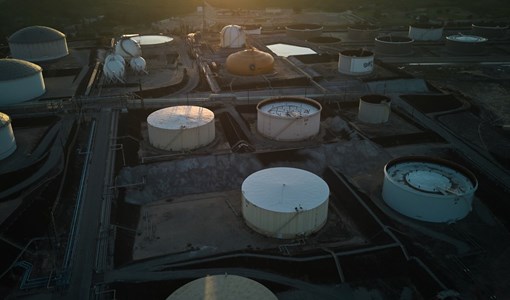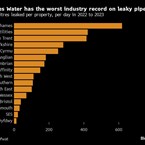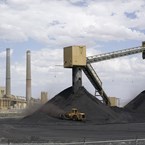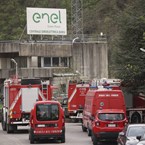MOL Group reported US$152 mln net loss in Q1 2020
Hungary’s MOL Group announced a US$152 million net loss for Q1 2020, which it blamed on the COVID-19 pandemic-related crisis.
MOL said that underlying operations were running strong until mid-March, as reflected by the US$622 million Clean CCS EBITDA, however, the pandemic had already started to severely affect all business lines in the last 2-3 weeks of March and the situation further deteriorated in April.
“Due to the unpredictable external environment, 2020 EBITDA guidance was withdrawn, and organic capital expenditure guidance was cut by more than 25 per cent,” said MOL.
Chairman-CEO Zsolt Hernádi commented on the results: “Covid-19 shapes and rules the world and the energy industry. The pandemic situation and economic crisis that follows will cast a long shadow on our overall performance in 2020. While we are fighting the pandemic and doing our best to protect our people, our customers and partners, we are also working hard to make sure MOL can continue to operate even under extreme scenarios and can eventually emerge even stronger from this crisis. Our dedicated people, high quality assets, strong balance sheet and our resilient, integrated business model shall help us navigating through these unchartered waters. We have already made a series of difficult decisions that will help us to achieve cash neutrality, to maintain our liquidity and financial flexibility and to grab opportunities which may arise on the way towards normalisation.”
MOL reported that in Q1 it’s upstream EBITDA decreased to US$185 million in Q1. Oil and gas production volumes were 110.6 mboepd, 4 per cent lower than a year ago, due to the natural decline in CEE.
On the downstream side, MOL said that the Clean CCS EBITDA doubled and increased to US$295mn in Q1 from a low base, supported by doubling refinery margins. The polyol project reached 60 per cent completion at the end of Q1. The pandemic affects the project’s supply chain and makes workforce mobilisation increasingly difficult. Its full impact on the project schedule is not yet possible to assess, but delays are expected.
KEEPING THE ENERGY INDUSTRY CONNECTED
Subscribe to our newsletter and get the best of Energy Connects directly to your inbox each week.
By subscribing, you agree to the processing of your personal data by dmg events as described in the Privacy Policy.
More oil news

Rolls-Royce supplies mtu gas generator sets for remote Oman oil and gas production site
Apr 23, 2024
Dirtier and Heavier Oil Is Having Its Moment as Demand Shifts
Apr 22, 2024
Oil Falls After Weekly Losses as Traders Focus on Mideast Risk
Apr 22, 2024
Skittish Oil Market Enters an Uneasy Calm Over Middle East Risk
Apr 19, 2024
Exxon’s Market Value Tops Tesla’s as Oil Rises, EV Sales Slow
Apr 19, 2024
Oil Jumps Toward $90 After Israel Is Said to Strike Iran Targets
Apr 19, 2024
AD Ports Group signs deal with ADNOC Distribution for global distribution of marine lubricants
Apr 19, 2024
Europe Car Sales Drop in March as EV Weakness Persists
Apr 18, 2024
ADNOC to redeem exchangeable bonds in ADNOC Distribution upon maturity in June 2024
Apr 18, 2024
Oil Edges Lower as Israel Weighs Up Response to Iranian Attack
Apr 17, 2024
Chevron helping drive Egypt’s journey to become Africa’s energy powerhouse
Mar 11, 2024
Energy Workforce helps bridge the gender gap in the industry
Mar 08, 2024
EGYPES Climatech champion on a mission to combat climate change
Mar 04, 2024
Fertiglobe’s sustainability journey
Feb 29, 2024
P&O Maritime Logistics pushing for greater decarbonisation
Feb 27, 2024
India’s energy sector presents lucrative opportunities for global companies
Jan 31, 2024
Oil India charts the course to ambitious energy growth
Jan 25, 2024
Maritime sector is stepping up to the challenges of decarbonisation
Jan 08, 2024
COP28: turning transition challenges into clean energy opportunities
Dec 08, 2023
Why 2030 is a pivotal year in the race to net zero
Oct 26, 2023Partner content

Ebara Elliott Energy offers a range of products for a sustainable energy economy

Essar outlines how its CBM contribution is bolstering for India’s energy landscape

Positioning petrochemicals market in the emerging circular economy

Navigating markets and creating significant regional opportunities with Spectrum
































